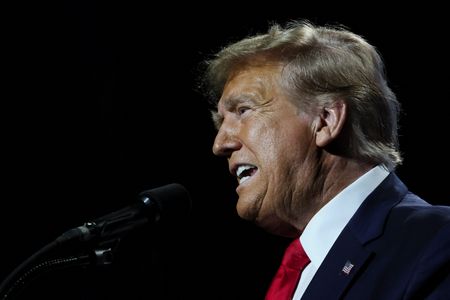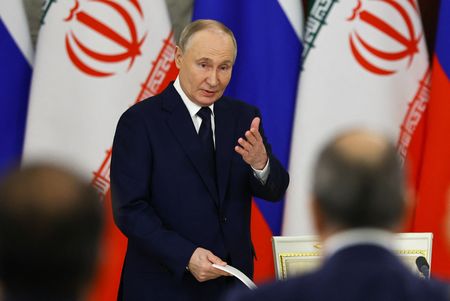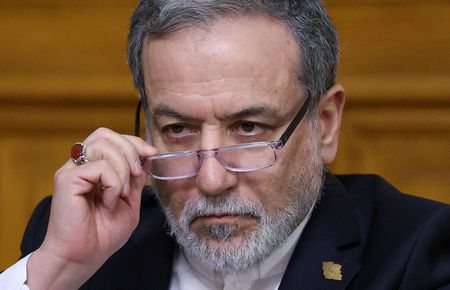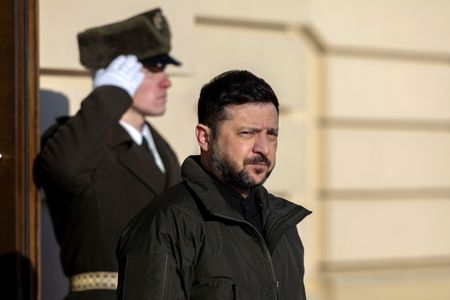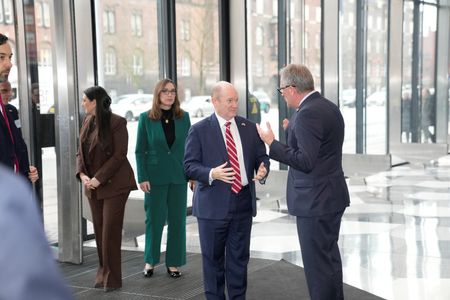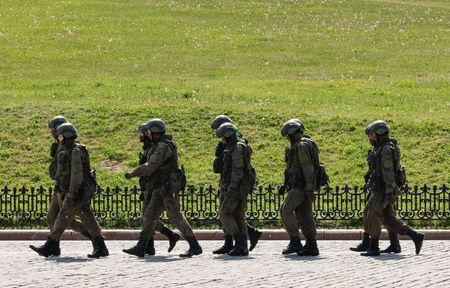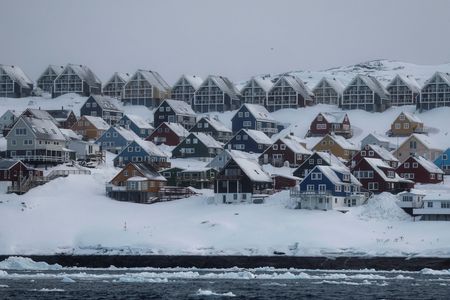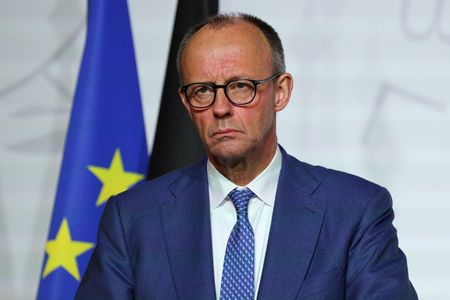By Andrew Gray and Sabine Siebold
BRUSSELS (Reuters) – Former U.S. President Donald Trump raised a storm of criticism from the White House and top Western officials for suggesting he would not defend NATO allies who failed to spend enough on defence and would even encourage Russia to attack them.
Here are the answers to some key questions about NATO, the comments by Trump – who is running for another term in the White House in November and leading President Joe Biden in some polls – and their implications.
WHAT IS NATO?
Founded in 1949 to counter the Soviet Union with Cold War tensions rising, the North Atlantic Treaty Organization is a political and military alliance of countries from North America and Europe.
Enshrined in Article 5 of its founding treaty is the principle of collective defence – the idea that an attack on one member is considered an attack on all of them.
NATO takes decisions by consensus but the political and military strength of the United States means that it is by far the most powerful country in the alliance, with its nuclear arsenal seen as the ultimate security guarantee.
WHICH COUNTRIES ARE IN NATO?
NATO currently has 31 members – most of them European nations, plus the United States and Canada.
The newest member is Finland, which joined last April in reaction to Russia’s 2022 invasion of Ukraine.
Sweden applied to join along with Finland but is waiting for Hungary to ratify its application as the final major step before membership.
During the Cold War, NATO’s main focus was protecting Western Europe from the Soviet Union.
After the 1989 fall of the Berlin Wall, NATO expanded to take in former communist bloc countries from Central and Eastern Europe.
NATO’s members range from large countries such as Britain, France, Germany and Turkey to small nations such as Iceland and Montenegro.
WHAT DID TRUMP SAY ABOUT NATO?
As U.S.
president from 2017-21, Trump often lambasted NATO and members such as Germany, accusing them of not paying enough for their own defence and relying on Washington to protect them. He openly questioned the collective defence principle.
Other U.S.
administrations have also accused Europeans of not spending enough on defence, but in less strident terms.
Trump took his criticism to a new level at a campaign rally on Saturday in Conway, South Carolina, when he recounted what he said was a conversation with the “president of a big country”.
“Well sir, if we don’t pay, and we’re attacked by Russia – will you protect us?” Trump quoted the unnamed leader as saying.
“I said: ‘You didn’t pay?
You’re delinquent?’ He said: ‘Yes, let’s say that happened.’ No, I would not protect you. In fact, I would encourage them (Russia) to do whatever the hell they want. You gotta pay,” Trump said.
HOW IS NATO FUNDED?
Trump has often accused other NATO members of not paying their dues, giving the impression that the alliance is like a club with membership fees.
But NATO operates differently.
It has some common funds, to which all members contribute. But the vast bulk of its strength comes from members’ own national defence spending – to maintain forces and buy arms that can also be used by NATO.
However, NATO members have committed to spending at least 2% of their Gross Domestic Product (GDP) every year on defence – and most of them did not meet that goal last year.
HOW MANY NATO MEMBERS MEET THE DEFENCE SPENDING TARGET?
According to NATO estimates from July last year, 11 members were expected to meet the 2% target in 2023.
Those members were Poland, the United States, Greece, Estonia, Lithuania, Finland, Romania, Hungary, Latvia, Britain and Slovakia.
Germany, Europe’s economic heavyweight, was estimated at 1.57%.
But German officials have said they expect to meet the 2% target this year, partly thanks to a special 1-billion-euro fund established in response to Russia’s war in Ukraine.
The lowest spenders as a share of national GDP were Spain, Belgium and Luxembourg, according to the NATO figures.
NATO is expected to release updated figures in the coming days that will show more allies meeting the 2% target, according to people familiar with the data.
WHAT IS NATO’S ARTICLE 5?
In Article 5 of the founding treaty, NATO members declared that an armed attack against one or more of them in Europe or North America “shall be considered an attack against them all”.
They agreed they would “assist the Party or Parties so attacked by taking forthwith, individually and in concert with the other Parties, such action as it deems necessary, including the use of armed force”.
However, Article 5 stops short of a commitment to an automatic military response to help an ally under attack.
That means the strength of Article 5 depends on clear statements from political leaders that it will be backed up by action.
This is one reason Trump’s comments caused such a furore, particularly as they came at a time of heightened alarm in NATO about Russia’s intentions, following its invasion of Ukraine.
By suggesting he would not take military action to defend an ally, Trump undermined the assumptions that give Article 5 its power.
“Any suggestion that allies will not defend each other undermines all of our security, including that of the U.S., and puts American and European soldiers at increased risk,” NATO Secretary General Jens Stoltenberg said on Sunday.
(Reporting by Andrew Gray and Sabine Siebold; editing by Mark Heinrich)

